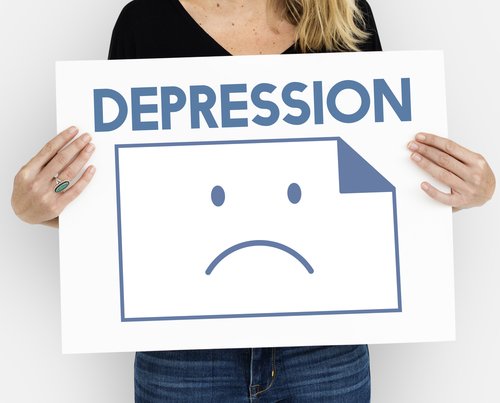Depression is a psychological condition that is twice as prevalent in patients with inflammatory bowel disease (IBD) than in healthy people. Despite its high incidence, there is no clear evidence supporting the hypothesis that depression could promote IBD progression, according to a recent report.
The review article, “Systematic Review and Meta-analysis: The impact of a depressive state on disease course in adult inflammatory bowel disease,” was published in the journal Alimentary Pharmacology and Therapeutics.
Researchers from Imperial College London and St George’s, University of London, found that depression is associated more with the progression of Crohn’s disease (CD) than in ulcerative colitis (UC).
“This study is about investigating whether stress and depression make inflammatory conditions worse,” Dr. Sonia Saxena, author of the study, said in a news release from Imperial College London written by Ryan O’Hare.
“We are still trying to untangle how depression and inflammatory bowel conditions could be linked,” Saxena said. “If being depressed makes things much worse, it’s important we are able to diagnose that. Essentially, if we could make a patient’s gut inflammation better by treating their depression, we could potentially avoid these side effects and improve patients’ quality of life.”
Symptoms of IBD include diarrhea, abdominal cramps, and extreme tiredness, all of which affect the patient’s overall quality of life. Due to the high incidence of psychological conditions such as a depressive state in IBD patients, a link between psychological well-being and the course of disease in IBD has been suggested.
Indeed some studies suggested that psychological stress can modulate gastrointestinal inflammation, but this association is still controversial.
The research team in this study conducted a literature review to evaluate the association between depression and the worsening of IBD. Eleven reports representing a total of 3,194 patients with IBD were evaluated. Three of the reports focused on patients with UC, four were about patients with Crohn’s, and the remaining included both UC and Crohn’s disease patients.
They found that five of the 11 studies reported an association between a depressive state and the course of disease. Still, pooled data from all the studies failed to provide evidence supporting a direct association between depression and IBD progression.
Looking specifically at the ulcerative colitis studies, no association was found. However, in the Crohn’s-specific studies, the authors did find a relationship between a depressive state and worsening of symptoms.
These results suggest a potential link between mental health and outcomes in Crohn’s disease, but not in ulcerative colitis patients.
“Our findings suggest that screening for depression in IBD [should] be part of the formal work-up of patients with IBD,” said Dr. Christopher Alexakis, first author of the study and a gastroenterologist at St George’s, University of London.
“The question of whether depression worsens outcomes is more difficult to answer,” he added. “The qualitative data implies that in patients with disease in remission, depression probably doesn’t influence outcomes.
“However, looking at all the studies together, there may be some evidence that depression may worsen outcomes in Crohn’s disease, although this relationship needs to be examined in more detail,” Alexakis said.

